Breaking the glass ceiling. Here's how Ukraine is moving towards gender equality
"I count the time of an internal reform of society from the Revolution of Dignity", says the co-host of the show "about" Yaroslava Kravchenko. "At first we became intolerant of usurpation and arbitrariness, then to corruption, then the war forced us to reassess values. Then we began to work out worldview topics, such as equality, tolerance, acceptance of others.
A video titled "I (don't) want children" was released a month ago and has received 100,000 views, and 22,000 users have already subscribed to the YouTube channel of the "about" show. This is the first Ukrainian-language talk show in which women talk without shame about sex, orgasm, self-acceptance, childfree options.
Yaroslava says that after first issue was realeased, viewers decided that the time for such a project had come: people were ready to speak openly about the personal.
"I bring something new about myself from every show issue. And then, when I read the comments of the subscribers, I understand that some of my "mental cockroaches" and problems are not contrived at all, but are universally Ukrainian", says the presenter.
The looseness and the public demand for public plain speaking are also about gender equality. And this is just one of the changes that have taken place in Ukraine over the past seven years.

On the road to equality of European style
In 2015, the UN summit approved the goals of sustainable development until 2030. One of them is ensuring gender equality. It is about overcoming discrimination, violence against women, promoting the principle of working together in housework, increasing women's participation in decision-making.
In Ukraine, changes in this issue began with the Revolution of Dignity and still continue.
According to the Association Agreement with the EU, signed in 2014, Ukraine must bring its legislation into line with European standards in various areas. Thus, in addition to the visa-free regime that everyone talks about, the country should "catch up" with world practices, in particular in gender issues.
As the Ukrainian Center for European Policy explains, the annex to Chapter 21 of the Agreement lists specific directives that Ukraine needs to implement in its legislation, including provisions on equal treatment of men and women in the social sphere, as well as employment, education, and decision-making.
Some of the changes have already taken place, but there is still work to be done.
Change number one. Women in bodies of authority
According to The Global Gender Gap Report, which thoroughly compares countries by gender equality, in 2012 Ukraine was the only country in Eastern Europe where there were no women in government and only 9% in parliament. Already in 2015, there were 12% women in parliament and 11% in government. As of 2020, we have 20% women in parliament and 13% in government.
Despite this, last year Ukraine was 74th in this ranking. Among the neighboring countries, only Russia (81st place) and Poland (75th place) are tanked lower.
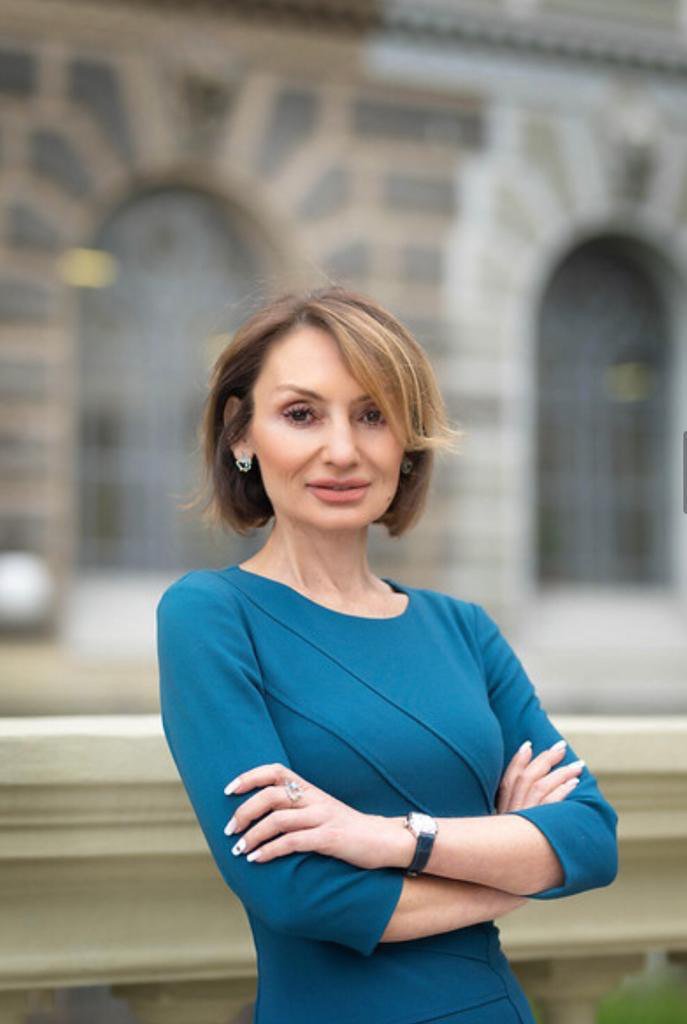
"Career is not an end in itself. The goal is to be actualized. It is not necessary to take a high position to be self-actualized", says Deputy Chairman of the NBU Kateryna Rozhkova. She assures that she has not encountered gender stereotypes in relation to herself. The maximum was the skepticism when she, a teacher of Ukrainian language and literature, received a second higher education and came to work in a bank.
However, like women all over the world, she faced additional burdens and internal doubts.
"I have two children, and there were difficult periods. As far as I can see and as I communicate with colleagues from other countries, this problem exists not only in Ukraine. All over the world, women have an extra workload. On the one hand, it is shaped by the social stereotype that a woman is the guardian of the family. On the other hand, it depends on the women themselves. Because the maternal instinct doesn't disappear, and no matter what you do there is this thought in the background: "I don't spend this moment now with my children, so I'm a bad mother," she says.
Rozhkova did not take a maternity leave, she is convinced that the important thing is not the amount of time spent with children, but its quality.
"Sometimes you have to miss on something. Most often it is the sleep. But this is offset by the knowledge or experience you have gained", says the official.
She is happy that men are now taking over some of the household chores, and this gives women time to improve.
She says that professional women usually have many advantages, there are more diligent workers among them with an "excellence drive", but sometimes they lack confidence. And a woman's self-confidence can be provided by family, education, and conditions for self-actualization.
She believes that women can be inspired by success stories, telling them about those women who (and how exactly) manage to maintain a balance between career and family.
"It is important to tell the stories of bright, successful women in simple language", she says. "Talk to children when they have just formed an idea of the world, and with young women and adults, because you can change your life at any age, if you feel the need. So that girls are not afraid of future difficulties: it is necessary to study, and to train, and to practice. Because a stereotype is laid down since childhood: “What about the family? I'm a woman, after all."
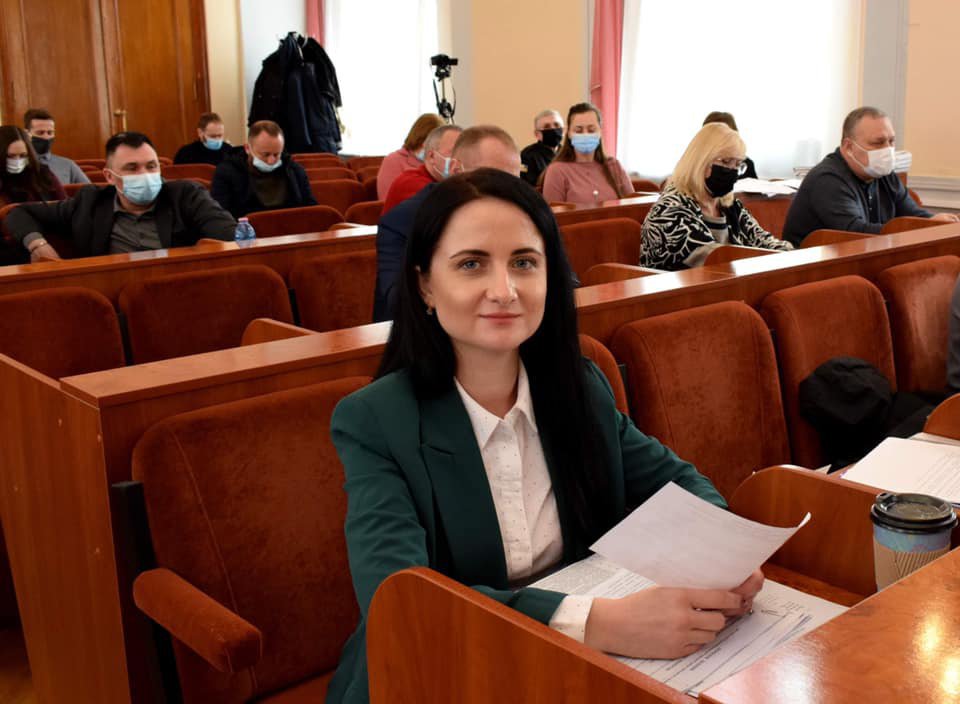
The situation with representation in the bodies of self-government was partly facilitated by gender quotas. They increased the number of candidates for local councils up to 44%, while in 2015 only 35% of those who ran for parliament were women. Such data were published by the Central Electoral Committee in December 2020.
– Жінкам у політиці, що сприймається як чоловіча справа, доводиться докладати 120% зусиль, що довести свою фаховість та експертність. Про це і дослідження говорять, і можу підтвердити зі свого досвіду, — каже Валентина Яремчук, яка є депутаткою Кропивницької міської ради вже другу каденцію. — Це дивно звучить, але чоловікові достатньо виглядати презентабельно, щоб виборець за нього проголосував, а жінці доводиться переконувати, що вона не гірша за чоловіків-політиків і потягне цю «чоловічу справу». Так само у своїй першій депутатській каденції я мусила своєю роботою доводити колегам свою фаховість.
"Women in politics, which is perceived as men's business, have to make 120% of efforts to prove their professionalism and expertise. Research states this, and I can confirm from my own experience", Valentyna Yaremchuk who is a member of Kropyvnytskyi city council for two terms says. "It sounds strange, but it is enough for a man to look presentable for a voter to vote for him, but a woman has to convince that she is not worse than male politicians and will be strong enough to succeed in this "man's business". Similarly, in my first term as a member of the council, I had to prove my professionalism to my colleagues with my work."
it is enough for a man to look presentable, but a woman has to convince that she will be strong enough to succeed in this "man's business"
She understands that gender quotas are a necessary measure, but she hopes that they will not be needed soon.
"Including women in political lists based on theur sex is humiliating for women themselves", the council member believes. "Professionalism and leadership qualities should become the main criteria in the selection of candidates for the lists, both for women and men".
However, women are still a minority in central and local government.
"Under such conditions, a quota on the number of women is a necessary step," Valentyna Yaremchuk believes.
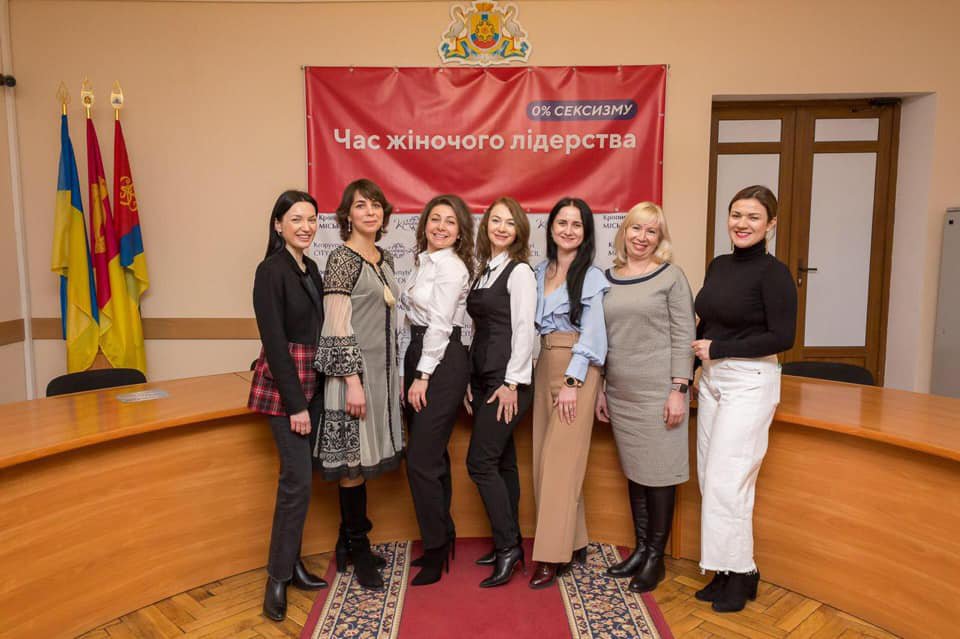
Together with other female colleagues, they formed a cross-factional alliance to consolidate efforts and solve social problems. In particular, together with public activists, they are lobbying for the creation of a shelter in the city for victims of domestic violence. The male council members supported them, but did not initiate the solution of this problem themselves, most likely because they did not see the need for it without women's participation.
Change number two. Equal job opportunities
In December 2017, the government repealed Order № 256, which considered 450 occupations as too dangerous for women and therefore prohibited. This change caused a lot of ridicule. Like, this is such a victory, now women will probably run en masse to become firefighters and work in the foundry.
However, the issue is not the number of applicants, but the very fact of discrimination. For example, women were forbidden to be subway drivers or bus drivers on long-distance hauls. In addition, high-paying professions were banned. After the ban was lifted, many more women joined the army and the police. As of 2019, there were more than 3,000 women in the patrol police and TOR special unit.
According to ArmyINFORM, in 2014 there were 14,000 women in the Armed Forces of Ukraine, and in 2020 there were 31,757 women, which is 15.6% of the total number of service persons.
Taking into account both military and civilian positions, at the beginning of 2021 there were 57 thousand women in the Armed Forces.
In 2016, orders of the Ministry of Defense expanded opportunities for women: now they have a choice of 160 positions available in the army. This year, for the first time, a woman passed a grueling two-week selection for the qualification course of the Special Operations Forces of the Armed Forces of Ukraine.
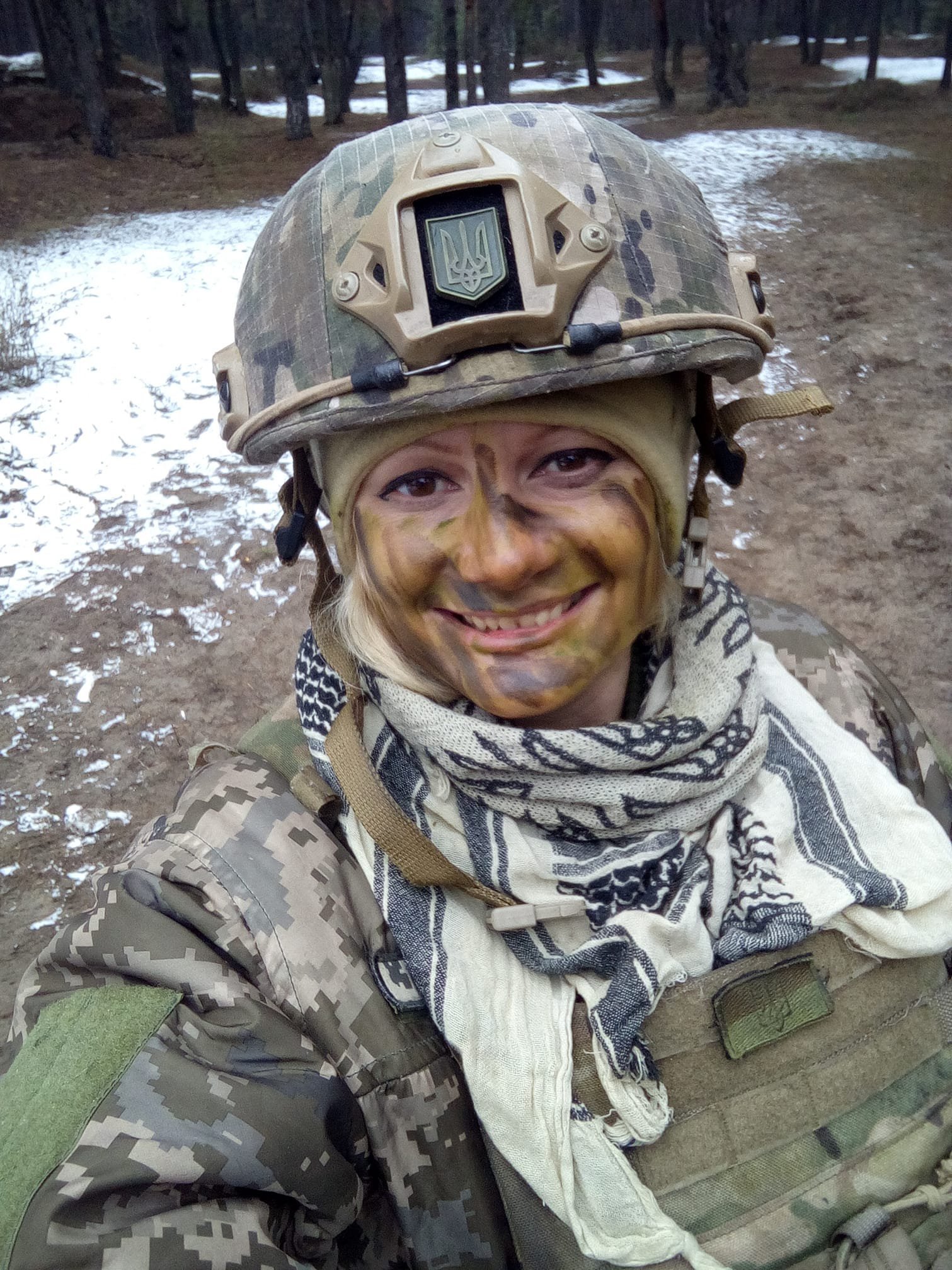
Maryna Valytska, commander of a squad in the the 46th "Donbas" Separate Assault Battalion, says stereotypes in this traditionally male profession can be broken when women are able to perform all tasks on an equal footing with men without seeking privileges. When women come to work in "search of happiness" and discredit themselves, they are despised.
She started as a rank and file shooter, now she is a squad commander. She says that if it weren't for the war, she wouldn't be in the Armed Forces.
"I had a job that I liked and which brought me a satisfactory income", says the servicewoman. "But I have always been involved in public life, I was a participant in the Revolution of Dignity. With the beginning of the Russian aggression, I realized that I needed basic knowledge to protect my family, so I began to look for an opportunity to undergo basic training. That's how I got into the ranks of one of the volunteer battalions, and later my unit was "legalized" as part of the Armed Forces".
Change number three. The language becomes more feminine
In May 2019, the Cabinet of Ministers approved a new version of the "Ukrainian spelling", which regulated the use of femininitive grammatical forms.
"Language is a mirror of society, so it reflects social change", says Anastasia Levkova, editor, journalist and author of the book Common language. How words are born and live. "Femininitives are needed because they make it clear that a woman has as legitimate a place in the world of professions, same as a man.
However, linguists still have questions about the rules of plural use, given the feminitive grammatical form.
"Currently, when it comes to a group of people of different sexes, I use the familiar masculine form in the plural, but when it comes only to women, I use the feminine in the plural", explains the linguist. "In fact, it is the same in French and Polish with pronouns: if a group is comprise of men, the plural is ils (in Polish oni), if it is a group of women, the pronoun is elles (one); if a group comprises several women and at least one man, the masculine ils (oni) is used".
For those who want to use femininitives but do not know what form to use, she advises to use linguistic intuition or Google it, until a dictionary of femininities appears, which is already being prepared by linguist Olena Synchak.
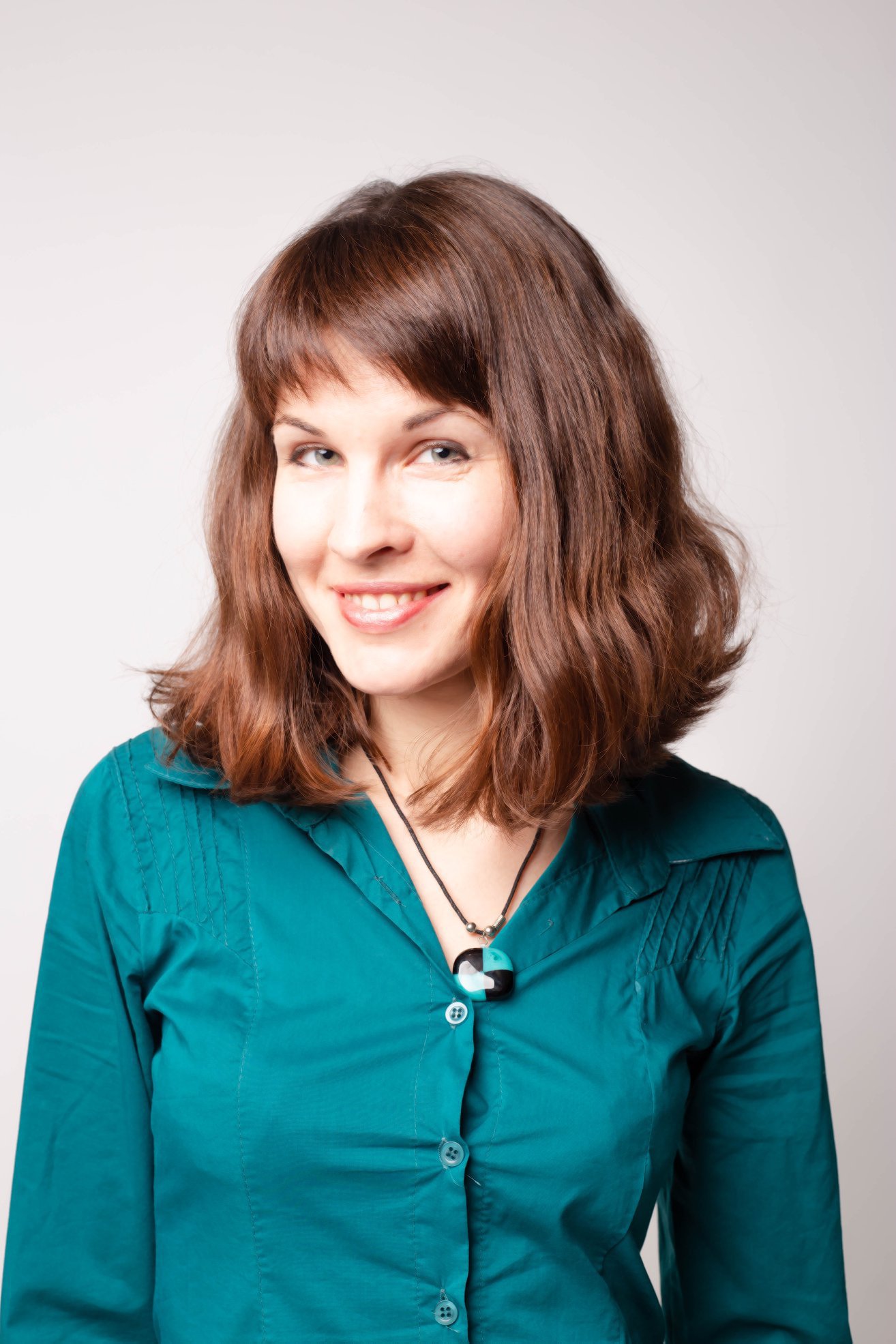
Gradually, feminitive grammatical forms will become usual. For some words, thet already are. For others, the oprions are still being discussed. The ones that stick will stay.
Change number four. Speaking publicly about violence
In 2016, an internet flashmob # яНеБоюсьСказати (I'mNotAfraidToSpeak, close to #meToo - translator's not) went viral in social networks. At the time, Anastasia Melnychenko, a civic activist and journalist, posted a candid post on Facebook about the sexual violence she had experienced, and she encouraged others to share their experiences. Hundreds of users joined the action in a few hours. The flash mob gained international publicity.
Later, in 2017, actress Alice Milano told her story on Twitter under the hashtag #MeeToo exposing sexual harassment and violence by film producer Garvey Weinstein.
Subsequently, an online campaign was held under the hashtag # RedMyLips. At the time, women posted photos on social media with red lipstick on their lips to draw attention to violence against women.
People started speaking more about domestic violence as well. In February 2019, the Verkhovna Rada passed amendments to the law and officially increased the responsibility for domestic violence. In particular, the victim may now receive a restraining order prohibiting the perpetrator from approaching her. An urgent restraining order for up to 10 days may be issued by a police representative. In some cases, the offender may face criminal, not just administrative, charges.
What if a woman actually suffers from violence but the police do not act, do not detain the abuser, do not give an order that would prohibit approaching her? Now a woman can only rely on loved ones, but the abuser can wait there or endanger her. In this cases, there should be a shelter, a place where a woman with children can hide and live safely for some time. However, there is currently no system of state sponsored shelters in Ukraine.
Activists have long initiated the opening of such shelters, but local authorities have usually justified themselves by saying that there is no money in the budget.
In Kropyvnytskyi, for example, premises for a shelter have already been found , although UAH 4,300,000 is needed to equip and ensure its operation.
In April this year, the Ministry of Social Policy announced that it was ready to provide a subvention to local governments for these needs. UAH 274.2 million will be allocated from the state budget for the development of support services for victims of violence.
However, Ukraine still has not ratified the Istanbul Convention, an international agreement designed to protect women's rights.
"Not all provisions of the Convention are reflected in Ukrainian legislation", explained Kateryna Levchenko, the Government Commissioner for Gender Policy, during a round table on the occasion of the 10th anniversary of the signing of the Istanbul Convention. "For example, there is no definition of liability for stalking amd sexual harassment, which should be subject to criminal or statutory sanctions. And such forms of violence as mutilation of female genitals in accordance with religious or social traditions are, in my opinion, completely incorrectly classified as bodily injuries. There is no guaranteed right of victims to compensation (from the state, - ed.)", Kateryna Levchenko explained.
Note that the ratification of the Istanbul Convention is opposed by the religious parts of society. The most moderate position is taken by the Orthodox Church of Ukraine: “When it comes to equal rights for women and men, the right to life or protection from domestic violence, we sincerely support these principles. However, we do not accept or approve of the obviously ideologically motivated interpretation of the term "gender" contained in the Istanbul Convention not as meaning male or female, but as a personal belief," said Metropolitan Epiphanius, the head of the church.
Change number five. Speaking more about women
The number of women quoted by the media is slowly growing. According to the Institute of Mass Media, if in 2014 there were 13% of media experts, in 2020 there were 24%.
How to break the glass ceiling?
Entrepreneur Maryna Riznyk jokes that she has one recurrent dispute with her husband: which of them goes to work on Saturday and which stays with the children.
After giving birth to their second child, Maryna returned to her small business, a sewing workshop, two weeks after giving birth. The family combines work with raising two children, the younger son is not yet three years old.
In 2016, she worked in a bank. For herself, she attended sewing courses, then she gave birth to their first daughter, went on the maternity hospital. For two years the family lived on her husband's salary. When her daughter was two years old, Marina was offered to return to work at the bank, she was even offered to work half a day to make it convenient to take care of the toddler, but she refused.
"I understood that it would start with parttime, and then they would want indicators from me, and I would still stay longer," Marina explains.
At the time, she tried to sew something for acquaintances and friends, so as not to lose her skills and not get bored indoors with the child.

I was interested in pole dance, my husband put a pylon at home. But I was faced with the fact that costumes are very expensive, 800 hryvnias was a large sum for me then. I decided to try to sew for myself. Then I tried to put the suit on the OLH, it was bought. When those 300 hryvnias came to my card, I was just delighted, ”she recalls.
She promoted her products through social networks. And later she rented a workshop nearby since there was no more room in the house. She became mother for the second time almost without leaving work: on Friday she was still working, and on Sunday she gave birth to a son. She stayed at home with him for a little over a week and started working again. For a few hours at first, then for longer. When the baby was one year old, they found a kindergarten where children were accepted to the nursery group from the age of one.
Now Marina's suits for sports and pole dance are bought both in Ukraine and abroad. There is no shortage of demand. She says her husband fully supports her and sometimes even jokes that he will go to work for her.
But not all Ukrainian women manage to combine motherhood and work.
In 2016, the Razumkov Center, with the support of the Swedish government, conducted a study of gender issues in Ukraine. They tried to analyze the factors that contribute to equality between men and women. It was found that Ukrainian legislation is gender balanced, but much of what is legally approved is not implemented in practice.
In fact, because of the perception of women solely as future mothers who will give birth and leave on maternal leaves for three years, career opportunities are hampered. This is the so-called "glass ceiling", unspoken obstacles that arise in the way of women.
According to a 2013 survey by the League of Social Workers, 29.1% of women have been denied by employers because they have young children or may later go on maternity leave.
The practice of part-time work, which would allow not to drop out of the profession and spend time with the child or children, is not widespread in Ukraine.
The state family policy has been virtually unchanged since Soviet times. Its declared goal is to increase the birth rate, but the welfare of the family, equal distribution of responsibilities in the family, the possibility of professional self-actualization of each person in the couple remain outside of the state's attention.
In addition, the situation in Ukraine is such that usually both people in a couple have to work in the family just to provide basic needs: food, clothing, communal services bills. Therefore, most often, after giving birth, a woman falls into a three-year dependence on her husband, and family income falls.
If the mother raises the child herself, she actually becomes hostage to penny one-time payments. An attempt to solve the problem was the project "Municipal Nanny". It makes it possible to officially hire a nanny and receive partial compensation from the state for her salary. The nanny must be formalized and pay taxes. According to the Ministry of Social Policy, more than 70,000 people have used the option since its inception.
But it does not suit everyone. First, it is difficult to find a formal babysitter in small towns. Second, many women traditionally work in low-wage areas. For example, if a young mother worked as a seamstress or nanny in a kindergarten, her salary may actually be lower than the salary of a babysitter.
According to Oksana Dutchak, a PhD in sociology, in order for women with children not to find themselves in financial trouble, it is necessary that the end of paid parental leave coincide with the time when the child can be accepted to a nursery or kindergarten. In Ukraine, in this sense, the situation is very bad, because parental leave, although it lasts three years, is not actually paid (outside the first two months of maternity leave). Children are accepted in kindergarden generally at three, and in the best cases at two years old. That is, for several years a woman finds herself in a situation where she has no income and she cannot give the child to the nursery to go to work.
"Accordingly, Ukraine needs a policy that would, on the one hand, introduce fully paid parental leave and, on the other hand, develop quality nurseries where children would be admitted from the age when the mother's parental leave ends. It is clear that such nurseries should have appropriate conditions that would ensure the safe and comfortable stay of children. There should be enough staff (not one educator for 15-20 children), who should receive a decent salary, there should be proper conditions of stay and food,"- says the researcher.
Dad on parental leave is also a sign of equality
According to a 2020 study for United Nations Population Fund in Ukraine, 84% of children aged under three are cared for by mothers, and 65% of Ukrainians do not even know that a man can take a perantal leave. Meanwhile, 30% of women would like the child's father to take childcare leave for at least some time instead of them.
This is partly due to the fact that men receive higher salaries than their famale partners do, and partly due to the traditional habit of removing fathers from upbringing: it is allegedly a woman's business, and men have to be breadwinners.
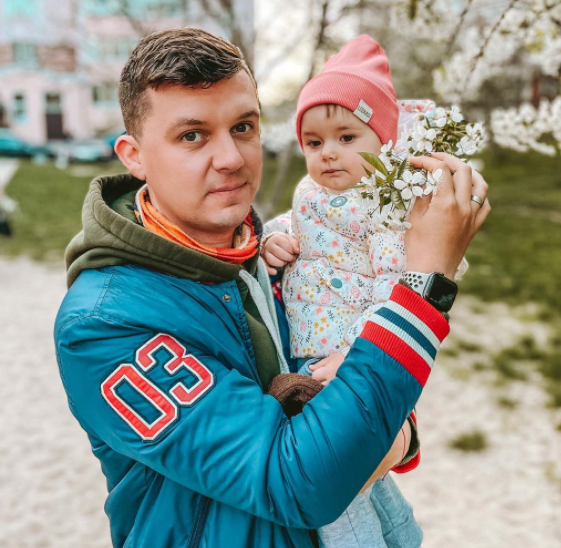
Oleksandr Ostapa, a resident of the city of Bucha in the Kyiv region, went on childcare leave for the sake of his wife’s career.
He is the communication manager of Tatohub.Kyiv and works as a self-employed entrepreneur, and she works in an international organization. In addition, she was promoted during pregnancy. Therefore, he has been taking on the main care responsibilities for a year and a half. He says he manages to take care of his daughter and take part in small work projects.
"My job doesn't prevent me from taking walks with my child, being with her more, and doing my house chores. In Ukraine, the topic of choice is related to stereotypes that have long been instilled: the mother must be with the child, the father must earn money. This is the main reason why men, even if it is economically advantageous, do not choose child care", says Alexander.
On May 6, the president signed a law that expands the father's capabilities. Previously, men were allegedly not forbidden to go to the maternity hospital, but only if the mother officially delegated it to them. Now the child's father will also be able to take a two-week leave after the birth of the child.
Employers see women as more demanding of working conditions and less flexible when it comes to working overtime. Of course, this stereotype forces them to choose men over women. At the same time, women themselves, trying to compete, show a willingness to earn less. In particular, females candidates on job search sites for similar vacancies often set lower salary expectations.
In Ukraine, women earn about 20% less than men, and this statistic has not changed over the years, although in 2020 this gap has narrowed by 3% to just over 18%.
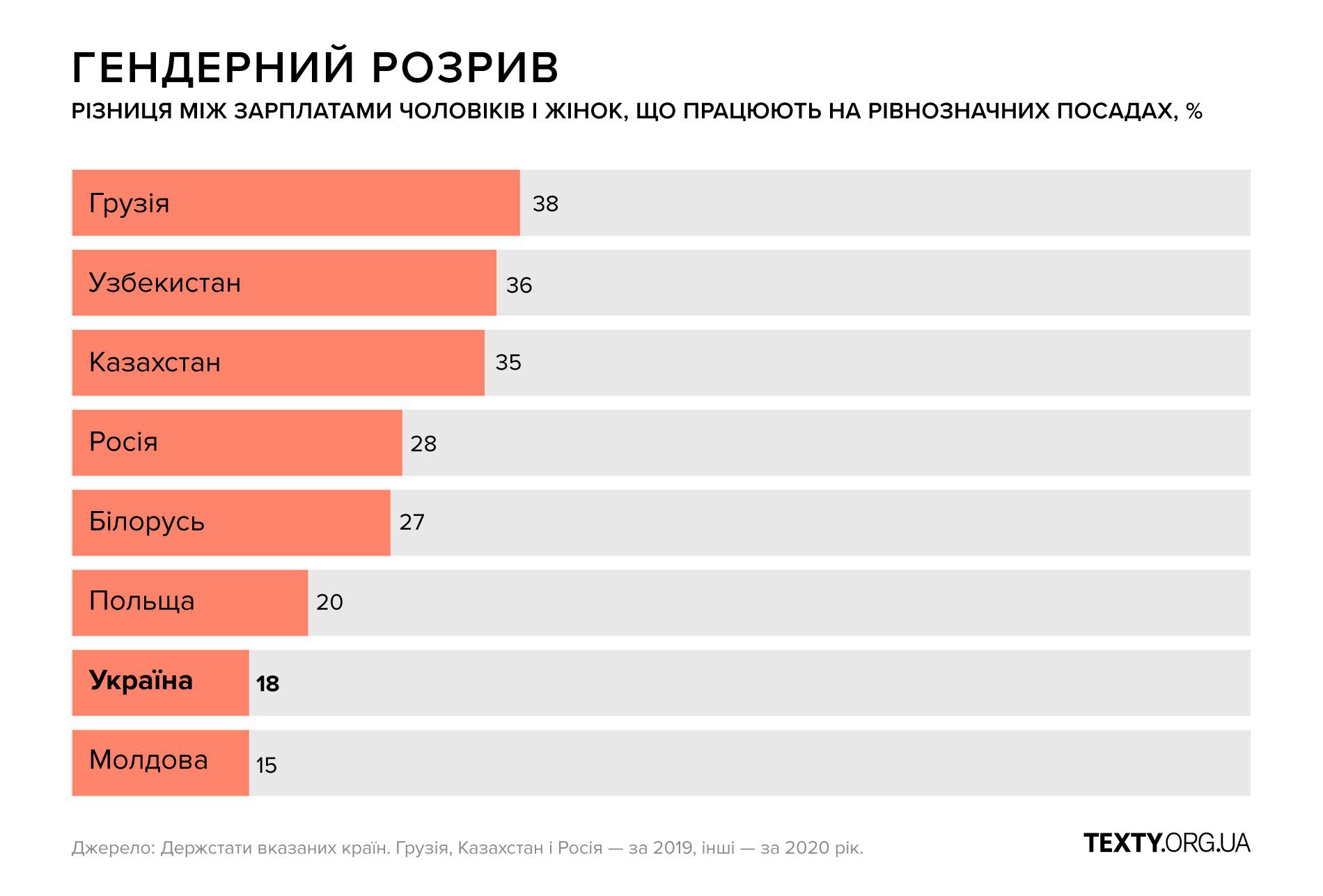
Difference in salaries between men and women at equal jobs, by counry:
Georgia, Uzbekistan, Kazakhstan, Russia, Belarus, Poland, Ukraine, Moldova
State statistics for Georgia, Russia, and Kazakhstan are for the year 2019, and 2020 for other countries
How women help women
Two years ago, Tetyana Mohyletska from Lutsk created a public organization "I am a woman driver."
"I felt that because of stereotypes it was difficult for girls to get behind the wheel. In addition, at the time I thought that the more women were behind the wheel, the safer the roads would be, because according to world statistics, women are less likely to get into serious accidents. Stereotypes about women behind the wheel still exist, but fortunately there are far fewer of them. Especially among young people, among those who travel the world", says Tetyana.
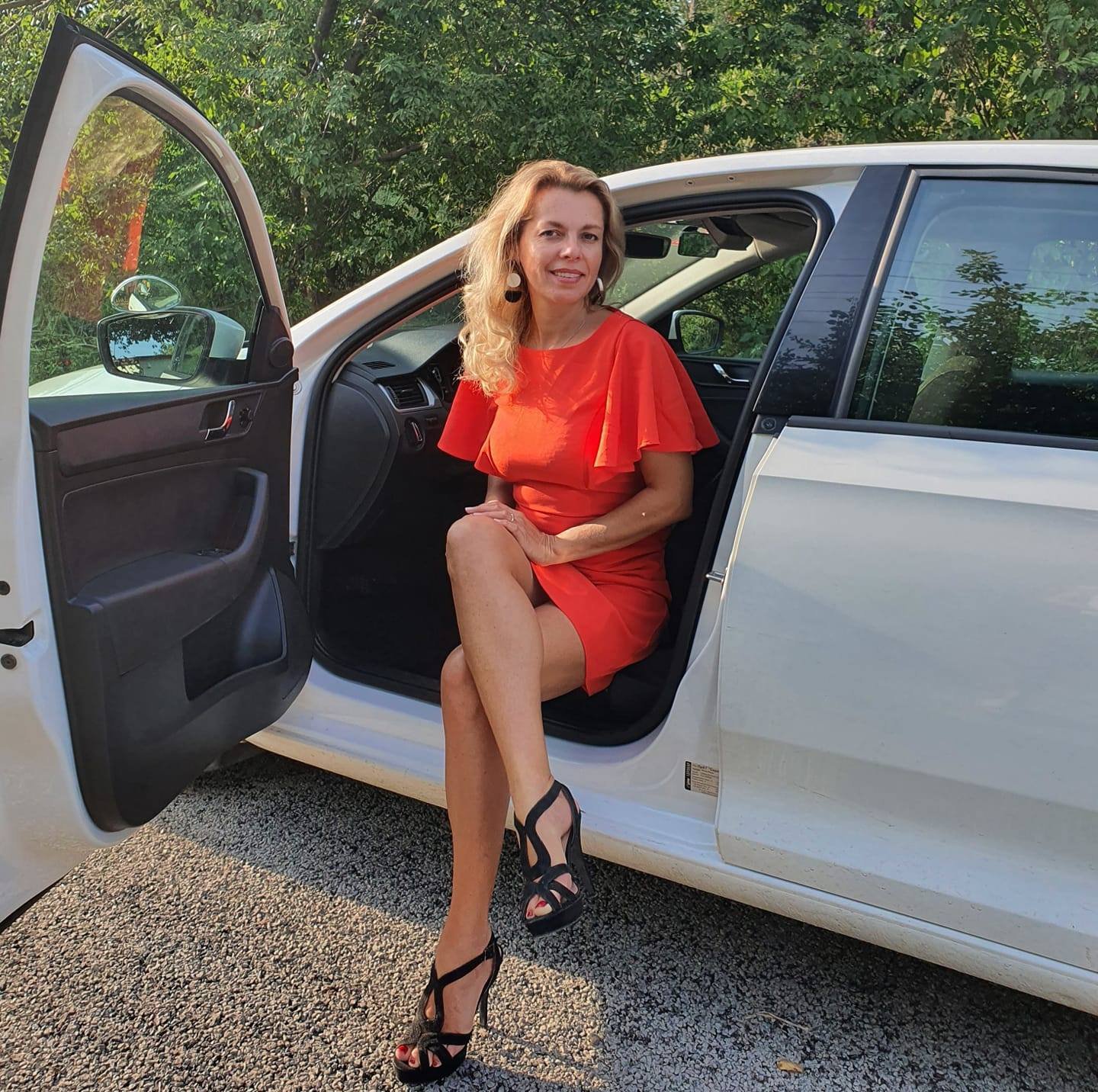
She says that over the years she has realized that despite the official figures, there are enough careless drivers behind the wheel. regardless of gender.
Therefore, now the main work of the organization is seminars on safe driving, social actions, reminders to pedestrians and cyclists about reflective items of clothing. Activists also organize family-type track days, where husband and wife take part in amateur car races.
There are more and more active women like her who implement changes in small steps.
"NGOs save women's lives in times of crisis," said Natalia Delieva, chairwoman of the Women's Association of Ukraine "Diya", which has 28 branches throughout Ukraine and about a thousand members. She says that women who have already achieved some success and want to improve the life of their community have joined their organization. They support networking in every way.
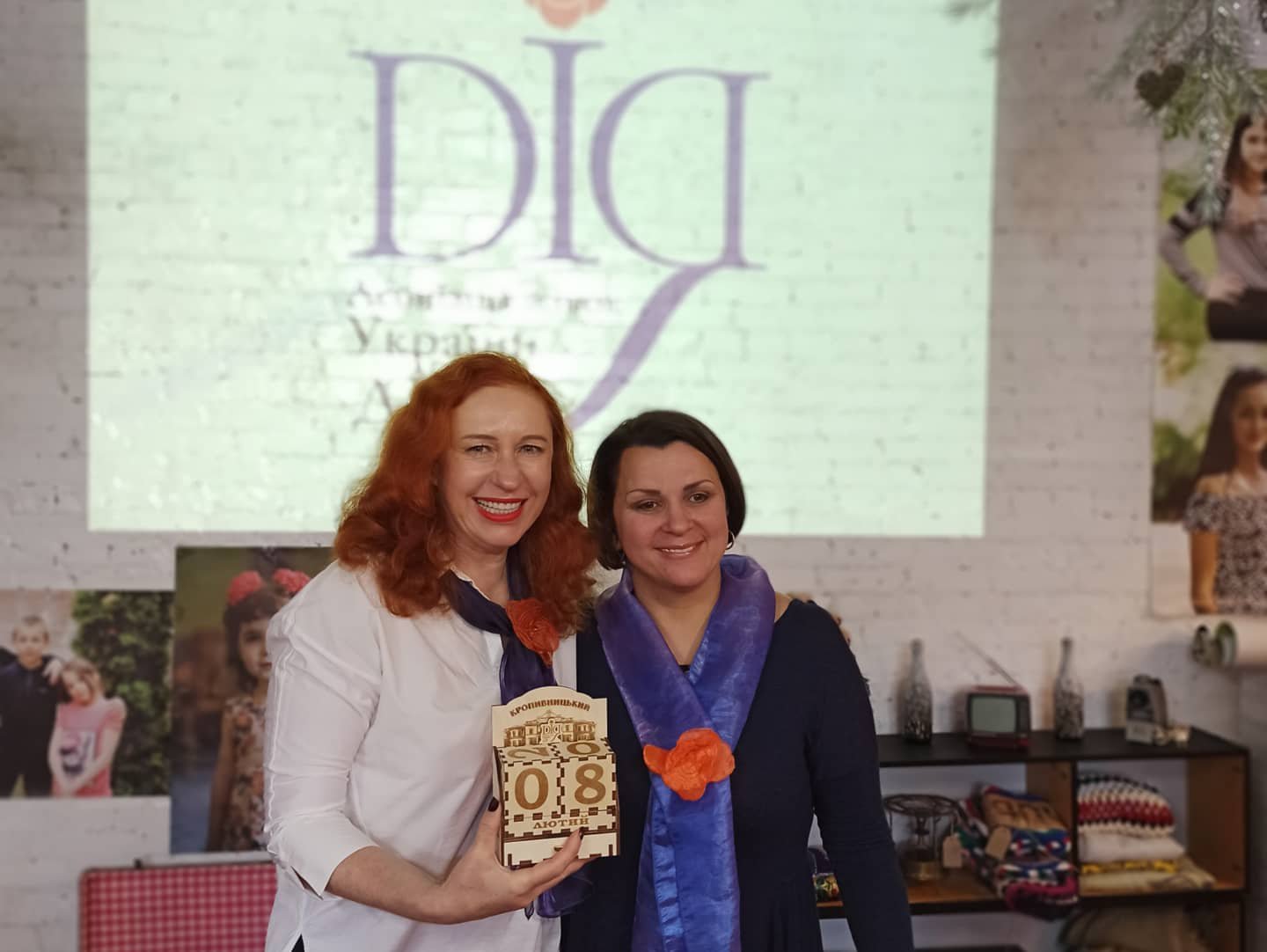
During the pandemic, they have supported each other by offering psychological help, looking for oxygen concentrators for loved ones, and solving difficult issues as a group.
One of the goals of the organization is supporting women's entrepreneurship. Small business owners meet, figuring out how to cooperate. Recently, together with Polish partners, they created the Woman Innovation Network project, which trained 50 women to do business in terms of financial and legal aspects.
"We have a big dream: to open a women's support center in Odesa, examples of which we saw in Washington, in Brussels. And it would be easy to do, but the big problem is that we can't find contact with our local authorities. We offer them to implement measures together, but they do not hear us," says Natalia. Often, instead of doing something common and beneficial, officials are interested in holding a "check" event.
Everyone has the right to look for where he or she will be self-actualized and happy. Because an unhappy woman means unhappy children and an unhappy marriage. If a woman is not actualized, she will start grumbling, and over time it will affect everyone, including aquarium fish. Because in fact women have a huge potential and we need to talk about it everywhere, - says Kateryna Rozhkova.

